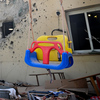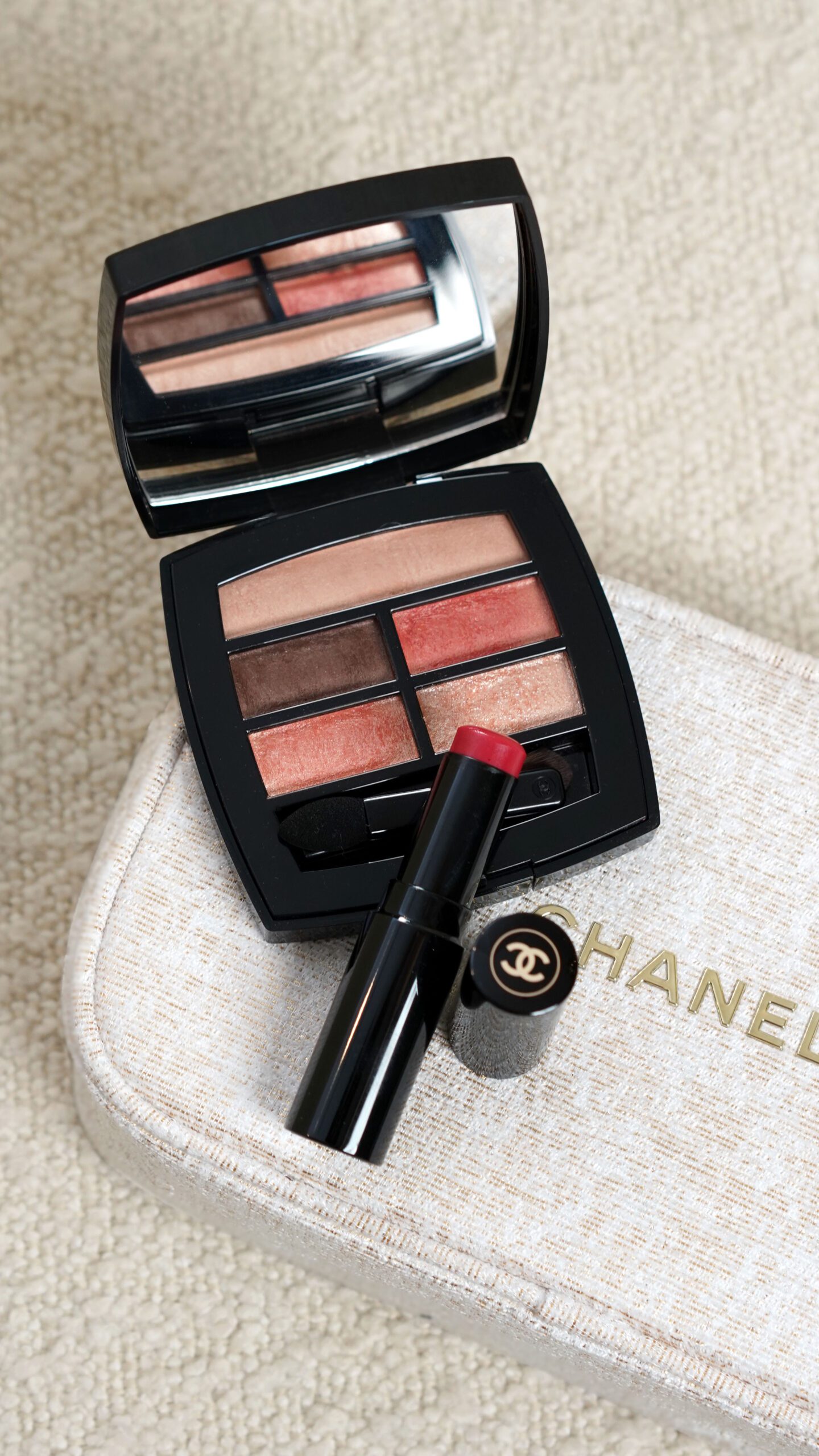
Palestinians evacuate the realm following an Israeli airstrike on the Sousi mosque in Gaza Metropolis on October 9, 2023. Photos of struggling, violence and dying in Gaza and Israel have flooded the information since Oct. 7.
MAHMUD HAMS/AFP by way of Getty Photos
cover caption
toggle caption
MAHMUD HAMS/AFP by way of Getty Photos

Palestinians evacuate the realm following an Israeli airstrike on the Sousi mosque in Gaza Metropolis on October 9, 2023. Photos of struggling, violence and dying in Gaza and Israel have flooded the information since Oct. 7.
MAHMUD HAMS/AFP by way of Getty Photos
Because the Israel-Hamas battle broke out in October, my Instagram feed has been crammed with violent and heart-wrenching movies and photographs: a Palestinian mom hunched over the physique of her little one killed by an Israeli air strike; a child’s bloody hand reaching out from the rubble; an Israeli mom questioning if her two little ladies, who have been kidnapped by the militant group Hamas, have been nonetheless alive.
Though the pictures are deeply distressing — typically they drive me to tears — I’ve felt compelled to bear witness to the struggle.
In my years working within the information, I’ve reported on little one trauma in Ukraine, Rohingya refugees in Bangladesh and the Syrian civil struggle. Protection of the present battle has been nonstop and it has been more durable for me to look away.
And I’ve seen that one thing unusual is occurring to me. Even when I’m not watching the information, I really feel irritable and anxious, like I’m on excessive alert. Each time I’m with my very own 8-month-old little one, I get flashbacks of posts I’ve seen, particularly of kids and infants killed, and I fear for his security. What’s going on? How can I pull myself out of this nightmare loop?
To search out out, I reached out to psychiatrist Arash Javanbakht, director of the Stress, Trauma and Nervousness Analysis Clinic at Wayne State College. He helps folks like refugees and victims of torture work by means of their trauma. And he is realized find out how to shield himself from the emotional toll of his job.
He says it will possibly really feel unhealthy to look away from conflicts and disasters all over the world – we who’ve the privilege to take action – however do not forget that your vicarious struggling will not assist anybody.
He additionally explains what occurs in your mind and nervous system while you take a look at graphic photos — and what you are able to do to safeguard your psychological wellbeing whereas nonetheless staying knowledgeable and engaged.
Frequent publicity to traumatic occasions could be dangerous
Javanbakht wasn’t shocked by my emotional response to the photographs of the Gaza-Israel battle. “Any human who sees these scenes will really feel horrible,” he says.
However he warns that extended publicity to any such imagery and information can have a destructive influence in your psychological well being. One examine discovered that individuals who had extra direct publicity to the assaults on 9/11 and spent loads of time viewing the nonstop TV protection of the towers collapsing “confirmed indicators of trauma, melancholy and anxiousness,” says Javanbakht.
One other examine discovered that individuals who skilled repeated media publicity to the Boston Marathon bombing in 2013 confronted acute stress.
So take note of your physique while you’re consuming information concerning the struggle, says Javanbakht. “We’ve got good sensors inside us. While you really feel frustration and anger and while you really feel your anxiousness goes up an excessive amount of, it is time to cease.”
He additionally advised me an individual could also be extra weak to the traumatic imagery in the event that they establish with one of many affected teams.
So the pictures of killed infants within the Gaza struggle, he explains, could possibly be extra distressing to me as a result of I’ve extra of an “emotional connection” because the mom of a younger little one.
And the struggling of Palestinians can really feel particularly near house as a result of I come from an Arab and Muslim household.
That is a pure response, provides Javanbakht. “[Humans] are born to really feel stronger affiliations to teams of people that we relate to. We’re tribal folks.”
Violent photos can activate your fight-or-flight response
Watching violent information and pictures can put your nervous system into fight-or-flight mode, says Javanbakht. “The unconscious a part of you is seeing human struggling and folks being killed or critically injured — which implies hazard,” he says.
On this state, stress hormones course by means of your physique, your coronary heart fee could also be accelerated and, “your consideration is directed at what could possibly be harmful,” says Javanbakht. He means that could possibly be why I have been so frightened for my child’s security over the previous few weeks, regardless that he’s not in quick hazard.
In the event you’re on this mind-set while you’re utilizing social media, it will possibly lock you right into a dangerous sample, says Javanbakht: scrolling by means of posts endlessly looking for destructive content material.
“The mind’s habit-forming circuitry is engaged at an automated stage. You are hitting this lever for extra dopamine” again and again, he says.
“As a result of my consideration is now directed towards risk detection, even when I see an image of a pet, I am going to scroll [through it quickly] till I see the subsequent explosion picture,” he provides.
Your agony is just not going to assist anybody
Once I talked about that I felt an obligation to take a look at movies and photographs of the struggle, Javanbakht shared an uncomfortable fact: “You feeling worse and in additional agony is just not going to deliver that child again to life. It is not going to finish the struggling in Gaza.”
That feeling that I ought to be consuming these photos “comes out of desperation,” he provides. You “need to do one thing however you do not know what to do, so that you attempt to endure as a lot as you possibly can, simply as a lot as they’re.”
However you “consciously including to that aching is just not going to assist anyone,” says Javanbakht.
On a sensible stage, I do know he is proper. However a part of me feels that my ache has a task to play. It helps me be empathize with these whose lives have been destroyed and upended — and motivates me to do what I can to assist them.
Channel your vitality into one thing optimistic
Anger, frustration, worry and anxiousness “all have energies,” explains Javanbakht. “These defenses have developed inside us to organize us for the fight-or-flight response. They fire up our vitality to tug us away from hazard.”
So “flip that vitality into one thing productive,” he provides. As an alternative of constant to take a look at distressing photos on social media, look into methods you possibly can assist: volunteer, donate, or talk your viewpoint to elected officers.
Tips on how to maintain your stress in verify
Javanbakht shares methods you possibly can shield your psychological well being whereas staying up to date on what’s taking place with the struggle.
- Cut back your publicity to upsetting information and imagery. As soon as you have learn the foremost headlines of the day, “you will know sufficient for the subsequent 5 to 6 hours” as a result of the information tends to function in cycles, says Javanbakht. “Scrolling extra is just not going so as to add to the data. It is simply going to create an emotional toll on you,” he says.
- Get all sides of the story. It will probably assist you to get a extra balanced view of the disaster. “Every part has turn into so tribal that one aspect does not let you know the total story,” he says. Take management of what you devour and be sure to get your information from trusted sources. “Do not let your feelings be manipulated and used like a instrument.”
- Redirect your consideration. In the event you discover it exhausting to cease this violent content material, watch a lighthearted program or one thing else you’ll take pleasure in, like sports activities, a nature documentary or a meals present, says Javanbakht.
- Focus in your routine. “Do the identical stuff you have been doing earlier than. Do not let [your feelings about the war] sluggish you down,” he says. So spend time with your loved ones. Train. “Particularly cardio and high-intensity exercises. It is a great way of relieving stress and frustration.”
- Discover how you are feeling and get assist. “When these feelings come up, deal with them,” he says. “Speak with individuals who perceive you and might empathize with you — it will possibly assist.” If that you must, get skilled assist.
- Maintain issues in perspective. Keep in mind there are “7 billion folks residing on this world proper now and there are loads of good issues taking place,” says Javanbakht. “There are Jews and Muslims who’re residing like regular people elsewhere.”




